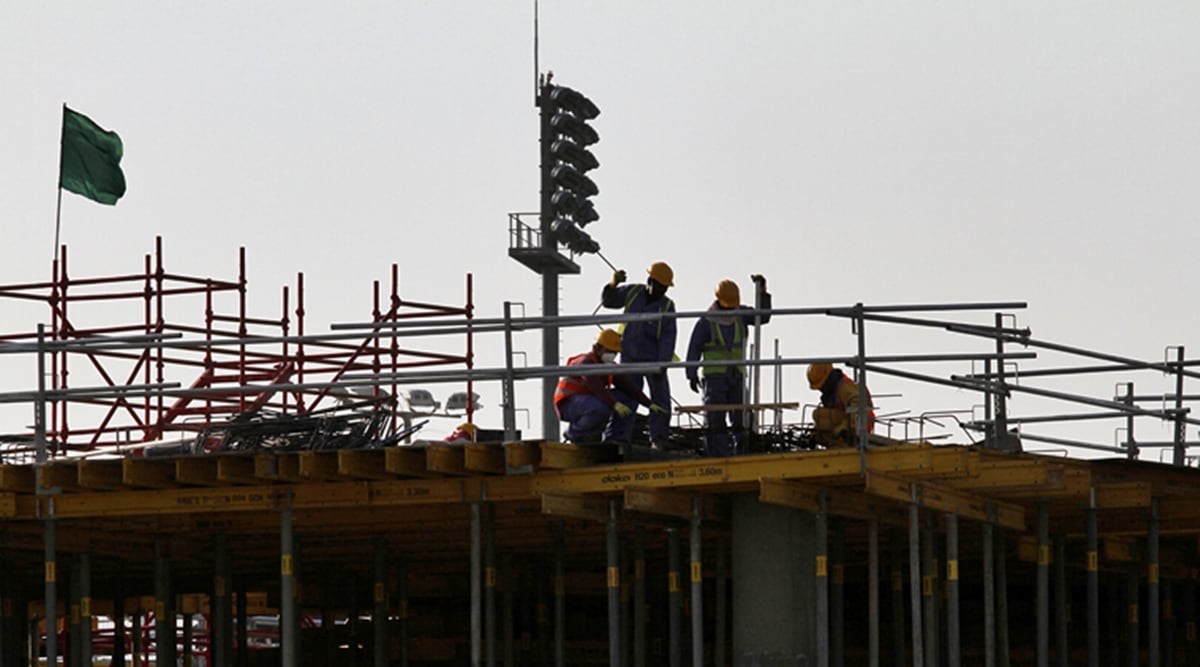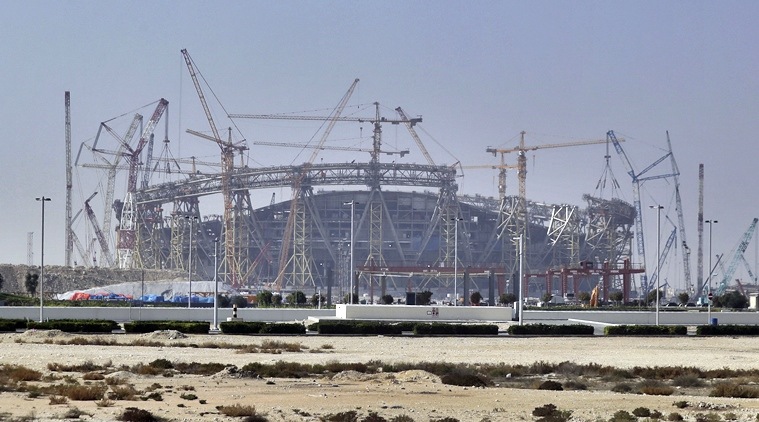 Migrant labourers work at a construction site at the Aspire Zone in Doha, Qatar, March 26, 2016. (File/Reuters)
Migrant labourers work at a construction site at the Aspire Zone in Doha, Qatar, March 26, 2016. (File/Reuters)In the run-up to the FIFA World Cup 2022 that it is hosting, Qatar has announced a host of changes to its labour laws — including a 25 per cent increase in the minimum wage to 1,000 riyals (around Rs 19,556), a mandatory stipend to cover the food and accommodation needs of workers.
The country has also dismantled its old and highly criticised ‘Kafala’ system, which required workers to take the consent of their employers before switching jobs. With this, workers in Qatar now have the freedom to change jobs without obtaining a no-objection certificate first.
“Either party must provide one month written notice in the first two years of the contract or two months’ notice beyond the second year of the contract,” Qatar’s Ministry of Administrative Development, Labour and Social Affairs (MADLSA)
said in a statement, according to Al Jazeera. The two reforms were first announced by the Emir of Qatar in October 2019 and were signed into law Sunday.
Qatar is the first country in the six-nation Gulf Cooperation Council (GCC) to announce permanent, minimum wage for non-citizens and offer them flexibility in changing jobs. The Middle Eastern country is heavily dependent on foreign labour; there are over 6,30,000 Indian migrants in Qatar.
 FILE – In this Dec. 20, 2019 file photo, construction is underway at the Lusail Stadium, one of the 2022 World Cup stadiums, in Lusail, Qatar. (AP Photo)
FILE – In this Dec. 20, 2019 file photo, construction is underway at the Lusail Stadium, one of the 2022 World Cup stadiums, in Lusail, Qatar. (AP Photo)
The amendments come as the country continues to face a scathing attack from across the world for exploiting its labour force. Thousands of migrant workers, including those building stadiums for the world cup, are forced to work in potentially life-threatening conditions, activists and international NGOs have alleged.
After the country won the bid to host the prestigious international football tournament in 2010, there was a sharp increase in the number of people migrating from various countries including India to Qatar to join the labour force. Without adequate resources, many of the workers are forced to live in the country’s overcrowded labour camps — infamous for their dismal living conditions. MADLSA has now made it mandatory for companies to provide their employees with accommodation and food worth a minimum of 800 riyals ( about Rs 15,645), a Reuters report said.
Hailing the government’s labour reforms, India’s Ambassador to Qatar Dr Deepak Mittal said, “We welcome and appreciate significant labour reform measures announced by the Government of Qatar, including to raise the minimum wage and easing the lateral movement of immigrant workers.”
“We remain engaged and work closely with the authorities in continuing efforts to protect and promote interest and welfare of Indian workers in Qatar,” his statement shared on Twitter by the Indian Embassy in Doha, read.
“This is a huge step towards our labour reforms,” labour ministry assistant undersecretary Mohammed Hassan al-Obaidly told Reuters. “These reforms are in the best interest of Qatar, its guest workers and employers.”
Amnesty International, in a statement, said: “This is an encouraging sign that Qatar may finally be heading in the right direction, and we call on Qatar to go further with these reforms, including removing the charge of absconding, to make sure that the rights of all workers are fully protected.”
According to a report by the Guardian, the Qatari government had earlier failed to investigate a spike in deaths of migrant workers in recent years. Data released by the Indian Embassy in Doha reveals that at least 761 Indian workers died in Qatar between January 2015 and September 2016. In most of these cases, the government refused to reveal the real cause of death.
In 2016, Prime Minister Narendra Modi met with a group of Indian workers at a camp in Doha. PM Modi told the migrant workers that he was aware of the issues they were facing, and vowed to bring them up with Qatari leadership when he met them.